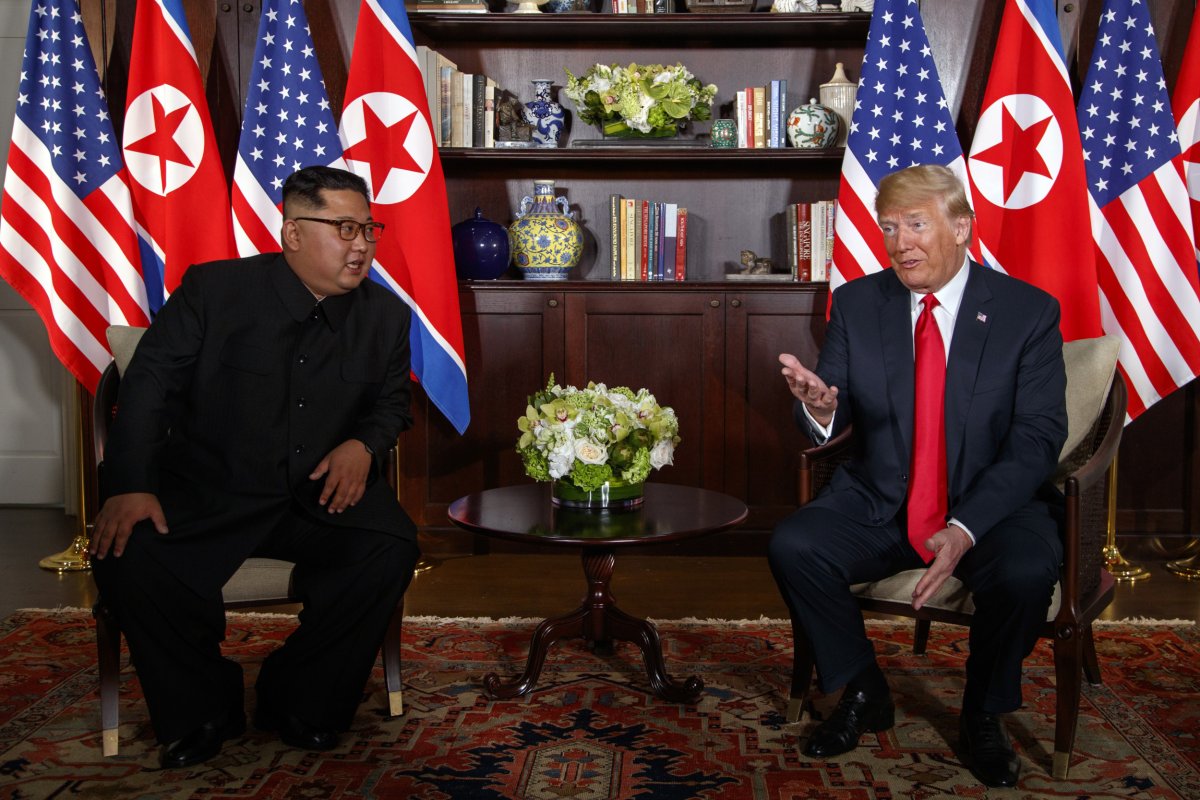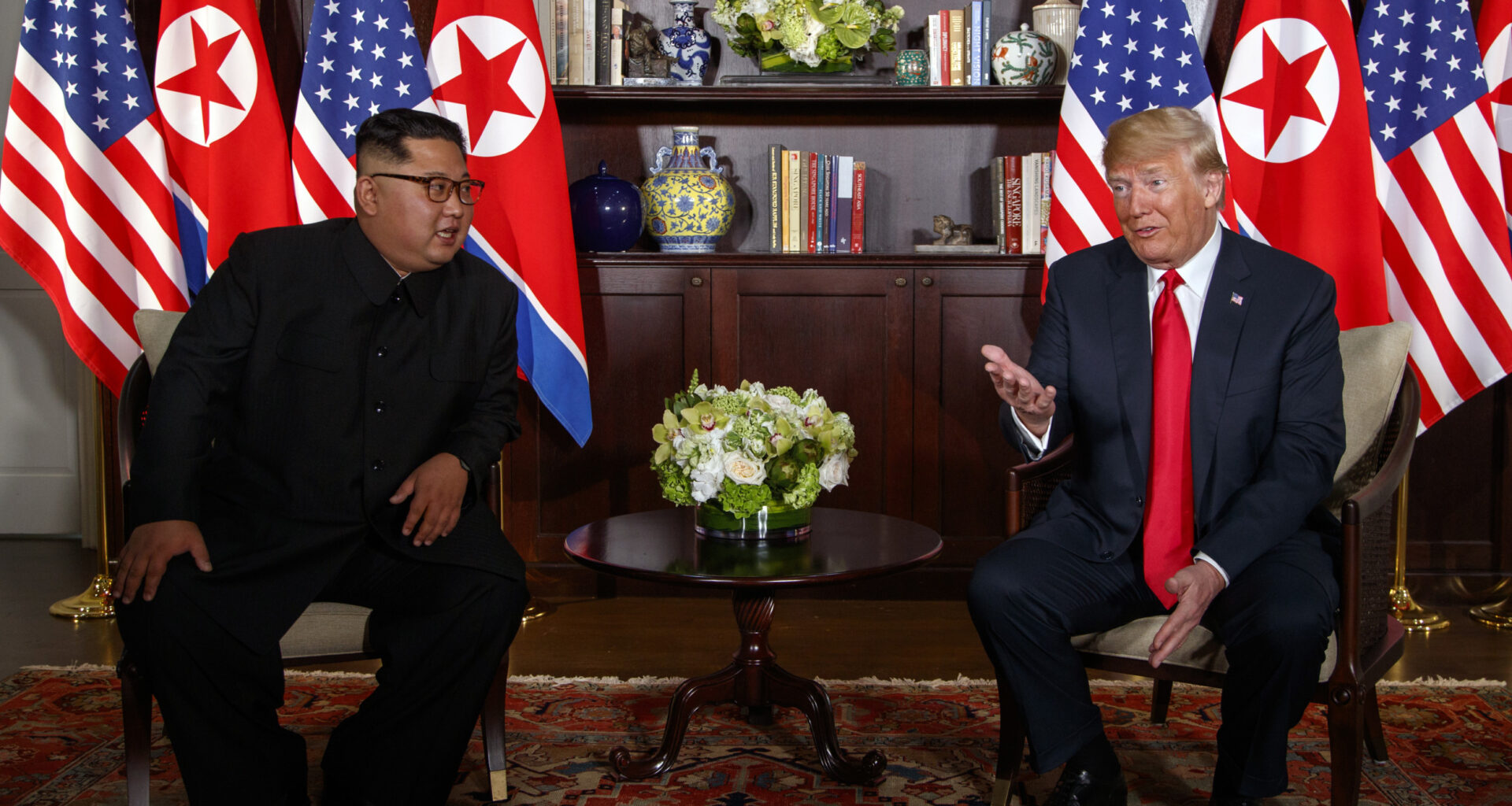As Donald Trump is elected the 47th president of the U.S., many wonder what his presidency will mean for the United States’ relationship with North Korea.
Trump and North Korean leader Kim Jong Un were rumored to have a close relationship during his first presidency, but it has been reported that that dynamic might have shifted ahead of the 2024 election.
Trump’s relationship with North Korea going forward might influence his response to the Russia-Ukraine war, one expert said, now that North Korean troops have been deployed to the Russian front lines.
Newsweek reached out to the North Korean embassy in the UK and the Trump campaign for comment via email.
The President-elect’s relationship with North Korea is unlike that between other American presidents and Pyongyang. In 2019 he became the first U.S. president to visit North Korea, after officially meeting Kim for the first time in Singapore in 2018.

North Korean leader Kim Jong Un and then President Donald Trump meet at a summit in Singapore in 2018. People are curious about what Trump’s 2024 election win means for the future of U.S.-North Korea…
North Korean leader Kim Jong Un and then President Donald Trump meet at a summit in Singapore in 2018. People are curious about what Trump’s 2024 election win means for the future of U.S.-North Korea relations.
More
Evan Vucci/Associated Press
Following that meeting, Trump and the North Korean leader formed what Trump often called a good relationship. He said he had “largely solved” the tension between the two countries regarding denuclearization, which some experts have disputed.
The two world leaders reportedly kept up some correspondence during Trump’s first presidency and exchanged 27 letters, according to the magazine Foreign Policy.
After Trump said that he gets “along with him [Kim Jong Un]” and “he’d like to see me back too. I think he misses me, if you want to know the truth,” in July, North Korea dismissed the comments.
In response, Pyongyang issued a statement via the Korean Central News Agency that said: “Even if any administration takes office in the U.S., the political climate, which is confused by the infighting of the two parties, does not change and, accordingly, we do not care about this.”
North Korea also stated that Trump “tried to reflect the special personal relations between the heads of states” but added that he didn’t incite “any substantial positive change.”
Trump reiterated his feelings on his relationship with North Korea, and its leader, last month when he said: “I happen to get along with Kim Jong Un very well,” as reported by The Hill.
Trump said that the relationship between himself and the North Korean leader started as “really nasty” and alleged that during Barack Obama‘s presidency they were close to war. He said the relationship improved during his presidency.
Following Trump’s re-election, describing how his presidency will affect North Korea, Edward Howell, a lecturer in politics at the University of Oxford and an expert in East Asian international relations, told Newsweek: “Trump has already said, in his pre-election rallies, that he would offer to meet Kim Jong Un if elected, and we should not rule out this possibility, given both leaders’ penchants for optical diplomacy.
“Indeed, North Korea has not even ruled out this possibility, but, only in July of this year, Pyongyang made clear how despite Trump’s engagement in leader-to-leader dialogue during his first administration, such summitry did not result in improved interstate relations.
“Ultimately, North Korea even went as far as to make clear that irrespective of the outcome of the election, Pyongyang’s worldview towards the U.S. would not change: Washington remains a ‘hostile’ power pursuing—with its allies—a ‘hostile policy’ towards the DPRK.”
The President-elect also noted last month that he had a strong relationship with Russian President Vladimir Putin during his first presidency, saying he “got along great with Putin,” which could further complicate how he responds to the Russia-Ukraine war.
In regards to the Russia-Ukraine war, Trump said in the spring that he would “end the war in Ukraine in 24 hours.”
Robert Orttung, an associate research professor of international affairs at George Washington University, previously told Newsweek that he believed “Trump has indicated a strong preference for Russia over Ukraine in both words and deeds.
Update, 11/06/24, 12:05 p.m. ET: This article has been updated with a new comment from Edward Howell.
